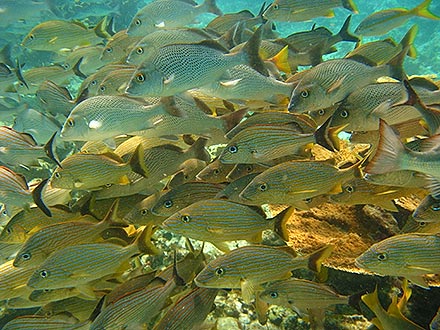The Abess Center’s Ph.D. in Environmental Science and Policy graduate program was founded in response to increasing demand for academicians and practitioners whose interdisciplinary training prepares them to address complex problems stemming from human impacts on the environment. Our program brings together a diverse pool of researchers who deploy a range of quantitative and qualitative methodologies to investigate and analyze environmental problems at the local, regional, national, and international levels. With a core expertise in tropical social-ecological systems, our faculty also have established strong ties with researchers and institutions around the globe.

Integrative Approaches and Themes
The Environmental Science and Policy program affords students the opportunity to work with faculty at all the schools and colleges of the University of Miami, in fields including Anthropology, Architecture, Business, Communications, Engineering, Epidemiology, Geography, Law, and Marine Sciences. Current doctoral students, for example, are pursuing projects related to geographic information systems (GIS) and disease epidemics; shark conservation; carbon sequestration; perceptions of risk associated with climate change; water resource management; community-based resource management; and aquaculture policy.
Our core courses provide a comprehensive grounding in cutting-edge theory, methods, and practice in environmental science and policy, and provide students from diverse undergraduate backgrounds with the skill sets and field experiences to formulate innovative interdisciplinary research projects. The overarching intent is to foster a career-long commitment to bridging conventional disciplinary boundaries in order to solve complex problems related to issues such as marine and terrestrial ecosystem management, climate change, water and energy supply, public health, pollution, and urban ecology. At the same time, the program is geared to producing students with the capability to communicate with diverse audiences, to appropriately frame environmental risks to promote sound public decision-making, and to facilitate social and political change through rigorous research.
Students will emerge with a thorough understanding of social-ecological interactions across multiple scales; of trans-boundary resources/systems and challenges to adaptive management; of biodiversity impacts of landscape management and conservation regimes; of legal and ethical dimensions of environmental issues; of the role of the media and information in influencing cultural attitudes and practices vis-ˆ-vis adaptation/mitigation strategies; and of the role of infrastructure and markets in transforming connectivity and sustainability of social-ecological systems.




